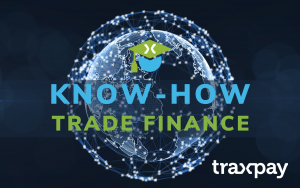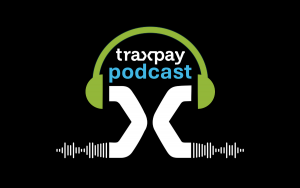The old expression “money makes the world go round” could easily be replaced today by “data makes the world go round.” In the twenty-first century, big data and business analytics is literally transforming everything and everyone.
The race to collect and harness data is driving businesses of every shape, size and sector to find solutions that will deliver a competitive advantage. According to IDC’s Worldwide Semiannual Big Data and Analytics Spending Guide, global revenues for big data and business analytics solutions are projected to reach $260 billion in 2022. Amongst the top five industries making the largest investments in these technologies are financial services organizations, which are well positioned to harvest a wealth of data around client interactions.
In a recent article, The Data Revolution: How Data is Disrupting the Financial Services Industry, author Mary Chen proffered, “While the value of data and its relationship to success is well understood in financial services, most new and increasingly valuable data is unstructured or not captured within a firm (dark data). The reason is straightforward: Legacy systems cannot support unstructured data without adding significant IT complexity.”
For this reason, many executives are concerned about the threat of disruption and displacement if they fail to take advantage of this trend. The NewVantage Partners 2018 Big Data Executive Survey found that nearly 80% of executives fear disruption from data-driven competitors. The same survey found more than half of executives believe an inability to be nimble and compete on data is the biggest competitive threat they face today.
Tapping into Data for Insights and New Business Opportunities
For banks, being able to extract and utilize data to understand where and how they can serve clients better is rooted in the insights that can be learned from available information. Conversely, corporate banking client’s need for data has never been greater. This presents invaluable new business opportunities for banks and their clients alike.
By tapping into data, banks can gain a deeper insight into what clients are doing and what hurdles they face in their trade and transaction processes. This knowledge allows banks to develop innovative solutions that solve these problems, creating a better customer experience, while at the same time opening the door to an expanded business relationship.
When combined with machine learning, big data offers banks and corporates a viable means of automating previously manual, everyday processes, which consumed man-hours. By replacing menial tasks, such as payments, reconciliation and reporting, with automated processes, treasury personnel are freed up to focus on more complex and strategic tasks that support overall company growth objectives. The wealth of data being collected can also prove instrumental in helping organizations in critical decision making.
Big data is already proving to be a game-changer when it comes to fraud detection and prevention. Here again, machine learning analytics are being employed to detect signs of fraudulent transaction activity, which alerts corporates and banks, enabling them to intervene rapidly. Risk analysis is another area where big data and predictive analytics are expected to have a real impact. Banks and clients will be able to employ artificial intelligence and machine learning to consider regulatory and economic factors, business capital, client segmentation, and other factors to assess risk and make more informed financial decisions.
Forward-Thinking Banks Partnering to Make the Most of Big Data
While banks may recognize the value of the data that can be gleaned from their interaction with clients, a lack of innovative design and an inability to go-to-market quickly enough in today’s digital economy is often hampering efforts to compete with third-party providers who have entered the space. Many of these providers are filling gaps in the marketplace, leveraging their cutting-edge technology and agile business models to meet emerging business needs. This presents a challenge as well as an opportunity for forward-thinking financial services institutions.
To overcome technology hurdles, many banks have begun partnering with Fintechs in order to advance and expand their own offerings. Banks can build off their extensive market experience and trusted relationship with corporates by partnering with innovative third-party providers, such as Traxpay, combining strengths to elevate the overall value chain.
A Dataconomy article concluded, “The ongoing trend of banks and Fintechs instead of banks versus Fintechs has already started yielding results for adopters. As Business Insider reports, 54% of incumbents in the UK reported increasing revenues and decreasing costs. They also reported an overall boost to their brand after forming partnerships with Fintechs.”
At the very heart of these successful collaborations is the ability to harness big data and business analytics to deliver transformative new solutions that dramatically improve corporate client operations and processes.
BY ALAN KOENIGSBERG
Alan Koenigsberg is Chief Revenue Officer and a strategic advisor to Traxpay. He is a payments expert and served as a banking and payments executive at global financial institutions for more than 25 years.



